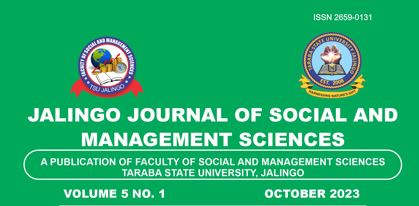Government Expenditure, Tax Revenue, and Economic Growth: Empirical Evidence from Nigeria
Keywords:
economic growth, tax revenue, government expenditure, ARDL, JEL ClassificationAbstract
This paper investigated the relationship between government expenditure, tax revenue, and economic growth in Nigeria using the autoregressive distributed lag (ARDL) model. The study utilized time series data from 1981 to 2022. The data analysed were collected on gross domestic product growth rate as the dependent variable, government expenditure, tax revenue, trade openness, and inflation as independent variables. The result of the findings revealed that both government expenditure and tax revenue had no significant impact on economic growth in Nigeria as they failed the significance test at 5 percent level. The results of the study confirmed that Nigeria’s economy is yet to harness the much-expected benefits of fiscal policy. The study recommended that the Nigerian government should spend tax revenue on productive projects that could promote economic growth in Nigeria thereby promoting the well-being of Nigerians. It further recommended that Nigeria needed to intensify and formulate stable economic policies capable of promoting higher tax revenue collection.

Downloads
Published
Issue
Section
License
Copyright (c) 2023 JALINGO JOURNAL OF SOCIAL AND MANAGEMENT SCIENCES

This work is licensed under a Creative Commons Attribution-NonCommercial 4.0 International License.
